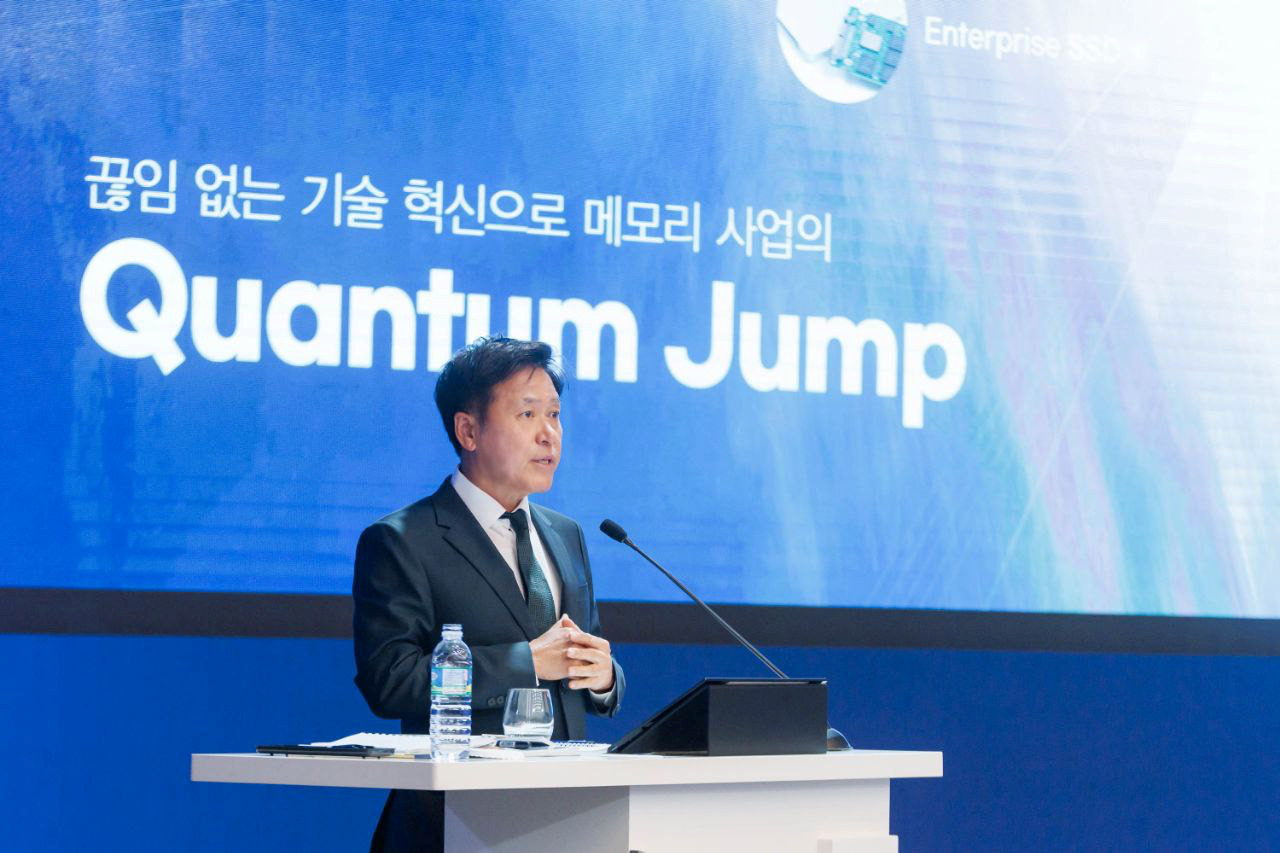
SK hynix, the world's second-largest memory chip maker, will not carry out an additional cut in chip production this year, and will stick to its plan to build an advanced packaging plant in the US, the company's chief executive officer said Wednesday.
Speaking at a shareholders meeting at the company's headquarters in Icheon, Gyeonggi Province, SK hynix Vice Chairman and co-CEO Park Jung-ho forecast the demand for chips to recover in the second half of this year. But as uncertainties remain, the company will cut its capital expenditures by half, and run its business in a “flexible” manner, the CEO said.
“In the past, the company had made preemptive investments to expand the production capacity to gear up to a potential increase in demand, but the company now looks to adjust the speed of production in line with the market,” Park said.
According to the CEO, SK hynix spent 19 trillion won in capital expenditures in 2022. For 2023, the chipmaker said it would cut figure in half and also reduce operation costs. But the company will not be reducing production, Park added.
In 2022, SK hynix recorded a combined revenue of 44.62 trillion won ($34.3 billion), and an operating profit of 6.8 trillion won, a decrease of 45.1 percent on-year.
Over its plan to build a $15 billion advanced semiconductor packaging plant in the US, the CEO said the company would stick to the plan, though it will take more time to decide on whether to apply for the chip subsidy program the US government offers.
“The application (process) appears to be pretty difficult. Our plant is for packaging, and it is not like we can calculate an overall yield (in this field). But we will still think more about (applying),” Park told reporters after the regular shareholders meeting.
The US Commerce Department recently released the application requirements for its $52 billion semiconductor funding program, aimed at encouraging global chipmakers to build production facilities within its borders.
While the US program is intended to offer large financial incentives, it has been taken as "onerous" for chipmakers to apply for, as applicants are required to provide the US government sensitive business information.
The details required include the applicant's projection of the wafers sold from the facility, the expected price for units and the annual price changes. Companies wishing to receive the subsidy would also have to share excess profits with the US government.
On the geopolitical risks triggered by the strategic rivalry between the US and China, Park said, “We are working to find the optimal direction (for business). We will not see the situation only as risky and will make it into an opportunity for the company to grow globally.”





